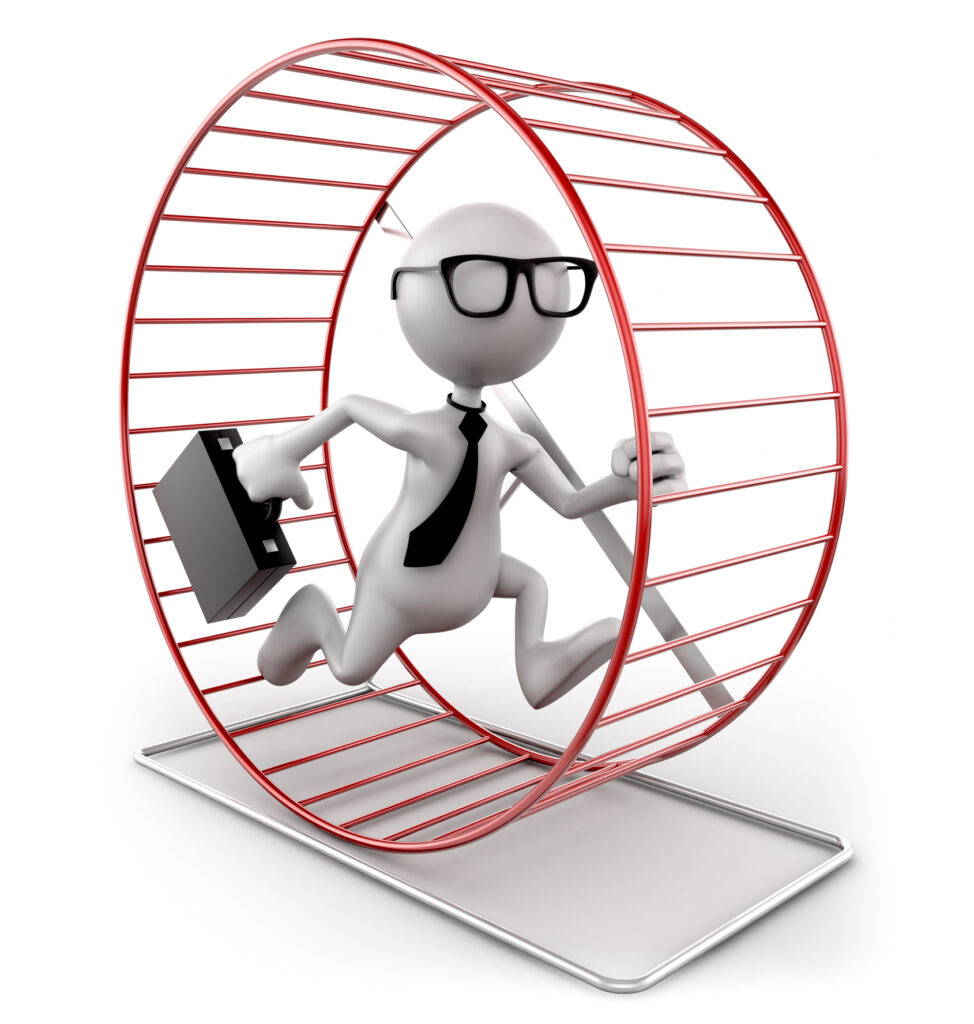My own journey from stress to burnout drove me to find solutions to fix my feelings; however, one day, I realised that there was only one way to create a lasting change: to have a deeper understanding of how my body worked.
I realised that if you imagined or thought about something stressful, it felt the same in your body as actually doing it. In other words, I realised that my (stressful) experience was being created by my (stressful) thoughts, which were being brought alive by and experienced in my body.
The fascinating and truly incredible part of my realisation was that this happens to each of us! But before we get to that part, let us deepen our understanding about stress turning into burnout, how it affects us and how it feels…
We all experience and react/ respond to stress differently. However, for some of us, stressful situations and how we respond/react to them can cause deep-rooted problems, either at home or at work.
At work, stress is often caused by feeling overwhelmed or that work is out of control. You might experience stress many days or weeks in a row, especially when you’re working on a large project or under a tight deadline, but once the project is done, the stress often lessens or disappears entirely.
Stress can also be caused by criticism or dissatisfaction at home, which can compound and magnify the levels at work.
Besides the physical impacts mentioned below, stress will – and does – affect your income, whether you are an employer, an employee, self-employed or an entrepreneur. Stress costs a fortune in lost production every year.
Stress and muscular pain
Stress initially presents as a physical contraction (tension) that shortens the muscle in your body. As a result, we feel a little tired in the short term, although nothing that a soak in the bath and good night’s sleep won’t cure. However, the longer that stress continues, the deeper, more expansive the effect of the physical tension on your body.
The physical impact of stress will swiftly escalate if stress develops from acute (healthy pace, high intensity, short-lived, positively competitive) to chronic (long term, without solution or respite, causing pain and frustration); before you know it, you are suffering headaches, stiff shoulders, neck and lower back and not feeling so great!
Worryingly, at least 70% of illnesses are stress-related.
Symptoms of stress
- Being more emotional than usual.
- Brain fog.
- Concentration difficulties,
- Difficulty in making decisions.
- Dizziness.
- Feeling overwhelmed or on edge.
- Feeling tired, anxious, depressed.
- Fluttery tummy, IBS or constipation.
- Forgetfulness.
- Grinding your teeth or clenching your jaw.
- Headaches.
- Increased heart rate (palpitations) or chest pain.
- Sexual dysfunction or disinterest.
- Shortness of breath.
- Shoulder, neck or back pain; general body aches and pains.
- Sleeping more than usual or insomnia
- Using alcohol or drugs to relieve your emotional stress.
How to feel great every day!
Start the day with this great breathing technique …
Begin with a deep, slow, long inhalation (in through the nose) then follow with a quick, powerful exhalation generated from the lower belly (out through the nose).
Once you feel confident and comfortable, increase the speed to one inhale-exhale cycle (all through the nose) every one to two seconds, for a total of 10 breaths.
Try a new morning routine
Before you get out of bed, visualise your perfect day, imagining it has already been happening for at least 5 minutes.
Then: – –
Stand in front of a mirror, look yourself in the eye and say ‘I love you,’ followed by ‘you’re awesome, amazing, ‘peace’ or ‘free’; whichever feels right to say. In the beginning, I found this impossible to do. One time I even cried, but a few days later I did it. I can’t tell you how incredibly empowering it was!
Before you start work, increase your mood and energy levels – eat breakfast, listen/sing/dance completely freely (as if no one is watching) to your favourite music or watch/listen to comedy that makes you laugh out loud for 20 minutes
Take some time to relax:
Practice self-care, even if you can devote only 5 to 15 minutes a few times a day to relax, take a break from reality. What helps you relax? Some ideas include:
- Read a book.
- Download and listen to a relaxing app or soothing music on your computer or phone.
- Take a walk.
- Gently stretch your tight achy muscles.
- Get a massage, reiki or reflexology session.
- Listen to upbeat music or a motivational podcast.
- Enjoy a soothing bath.
- Sit in silence with your eyes closed and breathe deeply and slowly for 20 seconds
If you are struggling with stress or anxiety sign up to fafs for free to receive your free mini-course and meditation HERE


